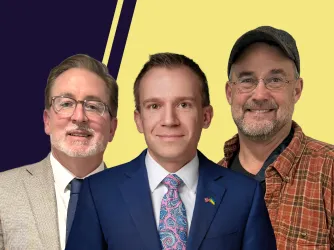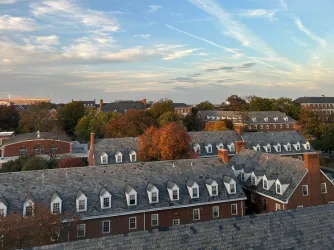Table of Contents
UNC-Chapel Hill Surrenders to 'Heckler's Veto,' Revokes Emeritus Professor's Network Access
CHAPEL HILL, N.C., June 21, 2011—The University of North Carolina at Chapel Hill (UNC) has surrendered to the "heckler's veto" by revoking Professor Emeritus Elliot Cramer's network access following outside complaints about a link on his website to an organization that advocates for animal welfare. Despite telling the complaining individual that the dispute was "not a University matter" and that the university did not monitor the content of websites maintained by professors, UNC nevertheless demanded that Cramer remove the link from his website and later canceled his network access entirely. Cramer came to the Foundation for Individual Rights in Education (FIRE) for help.
"Apparently, UNC is willing to punish its own professors on the basis of their speech at the request of an outside party, if that person is simply persistent enough," FIRE President Greg Lukianoff said. "Instead of protecting members of its community from outside threats to free speech, UNC has let this ‘heckler's veto' trump free expression on campus."
Cramer, a psychology professor at UNC since 1966 and an emeritus faculty member since 1994, is an active scholar as well as President of the Board of Directors of the Piedmont Animal Welfare Society (PAWS). For months, Cramer has been in a dispute with Joseph Villarosa that apparently originated with complaints about an animal shelter in Robeson County, North Carolina—a matter of public concern. Villarosa repeatedly drew UNC into their dispute by frequently complaining that Cramer's website on the university network contained a link to the PAWS website, which in turn contained a link to a page about the dispute.
On April 20, 2011, UNC General Counsel Leslie Chambers Strohm, apparently tired of dealing with Villarosa's complaints, emailed Cramer ordering that he immediately remove "any links to material referencing Mr. Villarosa, either directly or indirectly." Later on the same day, however, Strohm informed Villarosa via email that she had visited Cramer's website and had seen "no reference to you [Villarosa] whatsoever," that Villarosa's recourse lay "directly with Dr. Cramer," and that this issue was "not a University matter."
Cramer promptly removed the link, but it was too late. UNC Chancellor Holden Thorp notified Cramer on April 27 that he had ordered UNC's IT Security office to permanently disable Cramer's UNC network privileges, which also cut off Cramer's access to electronic library resources. Thorp accused Cramer of violating UNC's Personal Use Policy by "embroil[ing] the university in your personal issues and divert[ing] resources ... to a degree that is simply unacceptable."
FIRE wrote to Chancellor Thorp on June 1, pointing out that it was not Cramer who "embroiled" UNC in the dispute or who caused the "diversion" of university resources, and that free expression on campus is in jeopardy when an outside party must merely prove sufficiently annoying in order to cause UNC to cut off network access for a member of the university community.
UNC General Counsel Strohm replied to FIRE on June 15, stating that UNC would not restore Cramer's network access and characterizing Cramer's reasonable, good-faith efforts to defend himself as part of the problem. Strohm also claimed that UNC had not acted due to the content of Cramer's expression, despite the fact that Strohm herself had ordered Cramer to remove content from his website.
"UNC itself says its emeritus professors are a 'valuable resource' who are 'continuing members of the university community,'" FIRE Senior Vice President Robert Shibley said. "Yet when UNC was forced by an outside party to defend an emeritus professor's right to free speech, it instead decided to punish and silence him. Is this really how UNC chooses to treat its longest-serving faculty?"
FIRE is a nonprofit educational foundation that unites civil rights and civil liberties leaders, scholars, journalists, and public intellectuals from across the political and ideological spectrum on behalf of individual rights, due process, freedom of expression, academic freedom, and rights of conscience at our nation's colleges and universities. FIRE's efforts to preserve liberty on campuses across America can be viewed at thefire.org.
Contact:
Robert Shibley, Senior Vice President, FIRE: 215-717-3473; robert@thefire.org
Holden Thorp, Chancellor, The University of North Carolina at Chapel Hill: 919-962-1365; chancellor@unc.edu
Write to Chancellor Thorp and urge him to restore Professor Cramer's rights today!
Recent Articles
Get the latest free speech news and analysis from FIRE.

Free speech in Trump 2.0
Podcast

The Federal Bureau of Investigation (of protected speech)

The paper was her lifeboat — UMD called it interference
